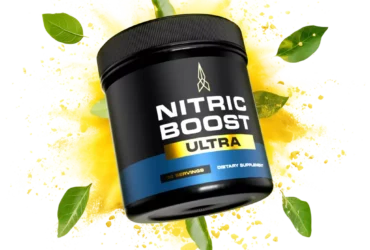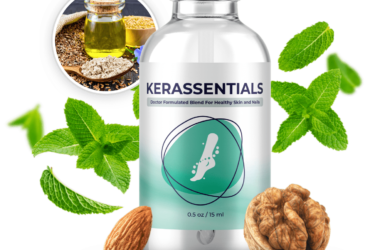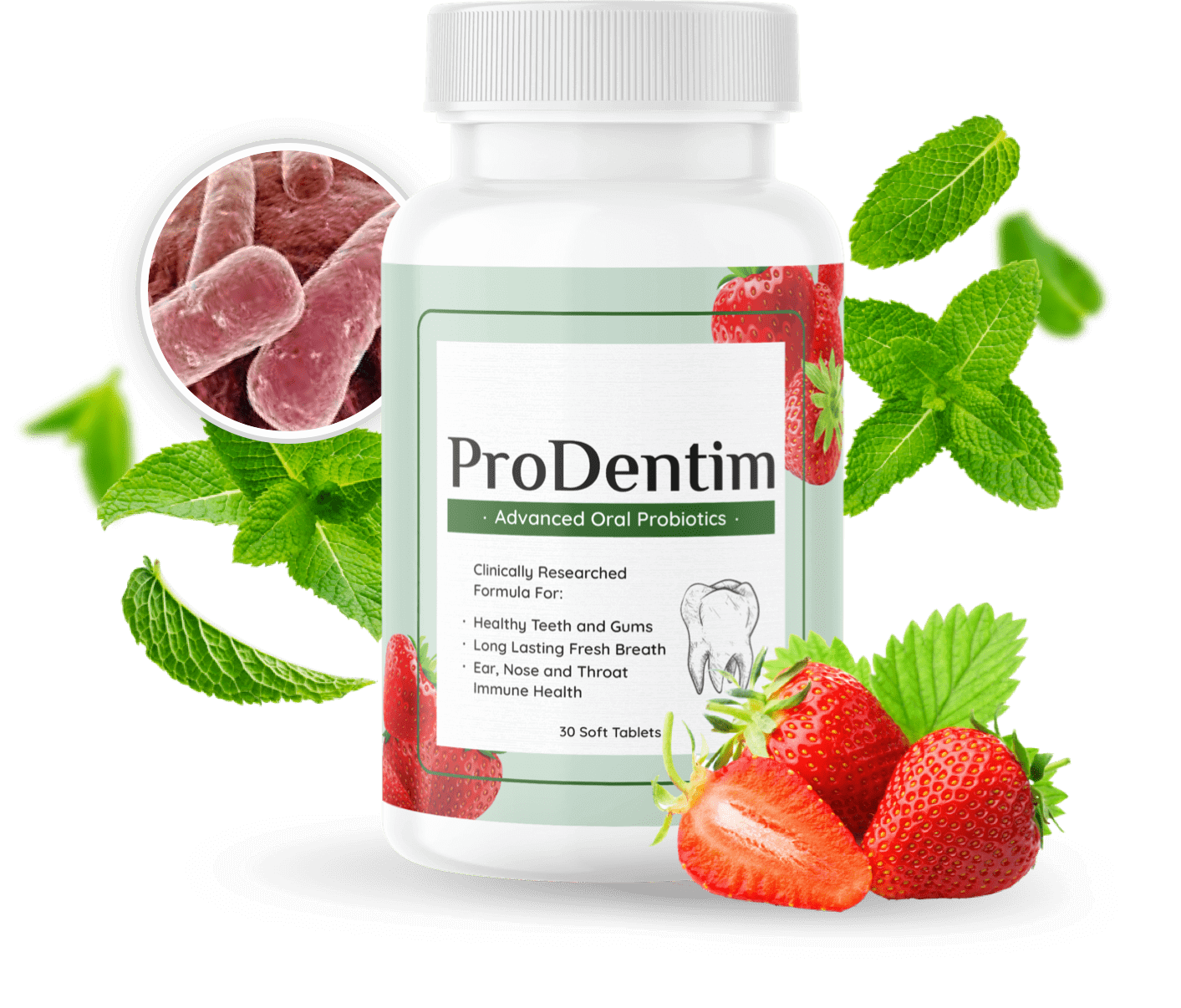I woke up one morning feeling tired, even after a full night’s sleep. My belly fat was still there, no matter how hard I tried to lose it. I felt like my body was fighting me. So, I decided to try Hepatoburn, hoping it could help.
Hepatoburn is a dietary supplement for liver health. It claims to boost liver function and support detox. It also promises to help with metabolic balance. In this review, I’ll share why I tried it, what it claims, and how it relates to research on liver function and weight.
Key Takeaways
- Hepatoburn is positioned to support liver health and hepatic wellness for adults with low energy and stubborn belly fat.
- The liver’s detox role and metabolic influence are central to why people try liver supplements and liver detox products.
- I chose Hepatoburn after personal fatigue and plateaued weight loss, informed by recent research on liver dysfunction and obesity.
- This review will cover how Hepatoburn works, key ingredients, safety, and what I experienced in the first weeks.
- Expect a practical, first-person account that balances product claims with scientific context and real-world results.
Understanding liver health and why it matters for weight and energy
I noticed my liver health when simple tasks left me tired. My midsection also grew, even with exercise. The liver controls blood sugar, stores glycogen, and runs gluconeogenesis.
It handles lipid metabolism, makes bile, and clears toxins. When the liver works well, my energy stays steady and metabolism balanced.
Role of the liver in metabolism and energy production
The liver is like a metabolic control center. It releases glycogen for quick energy. During fasting, it makes glucose through gluconeogenesis.
It breaks down fats for fuel. When the liver works well, my energy stays up and crashes are rare. Supporting liver health changes how I feel every day.
How the liver affects stubborn belly fat
The liver is like a fat-burning furnace. When it slows, fat storage increases. This makes belly fat hard to lose, even with diet.
Addressing liver health can help. It restores fat metabolism and breaks the weight loss plateau.
Signs of compromised liver function I noticed in myself and others
I kept a checklist of signs from my experience and others. Chronic low energy and brain fog were first. Bloating and weight gain around the midsection followed.
Strong cravings for sweets and digestive upset were next. Prescription drugs and toxins often hide these signs. When symptoms cluster, it’s time for a medical check-up and focus on liver health.
The science behind compromised liver function in overweight adults
I looked into the clinical literature to understand how liver health relates to excess weight and slow metabolism. The research shows that many people with obesity face both hepatic stress and metabolic inflexibility. Here are three key points to help connect biomarkers to everyday causes.
Summary of key 2023 research:
A 2023 study looked at overweight men and women. It tracked liver enzymes, ultrasound measures of liver fat, and insulin resistance markers. The study found that more liver fat and higher enzymes were linked to weight gain and poor metabolic flexibility.
The study used labs, imaging, and follow-ups over time. It showed that liver problems often come before worse blood sugar control and bigger waistlines.
Why lean people tend to show stronger hepatic markers:
Lean adults usually have less liver fat, better insulin sensitivity, and more efficient fat burning. They also have fewer inflammatory markers and more stable energy levels. A liver with less fat works better at processing fats and sugars, helping maintain weight and energy.
How toxins, diet, and lifestyle increase liver stress:
Exposure to pollutants, alcohol, and some meds can stress liver cells. Diets rich in fructose, saturated fats, and processed foods lead to liver fat and inflammation. Poor sleep, sitting too much, and stress also harm liver health.
I suggest getting tested if you’re concerned about your liver. Blood tests and ultrasound can show liver problems. They can guide you to a liver detox or a visit to a liver specialist for more advice.
What is Hepatoburn and how it works for hepatic support
I started taking Hepatoburn to boost my liver health and energy. It’s a mix of herbs, vitamins, and nutrients. It helps with detox, protects liver cells, and boosts metabolism.
Benefits include more energy, clearer thinking, less bloating, better digestion, and help with belly fat. You need to eat right and exercise too.
Product overview and intended benefits
Hepatoburn is a liver supplement with milk thistle, turmeric, and B vitamins. It supports detox, protects the liver, and helps with fat metabolism. It promises to improve energy and digestion over time.
Key mechanisms: detox, hepatoprotective action, and metabolism support
The formula works on detox pathways and balances liver activity. It has antioxidants and anti-inflammatory compounds. These help protect the liver and support fat processing.
Hepatoburn and similar supplements support the liver’s fat processing. This can help with metabolic health when you diet and exercise.
How I felt in the first weeks of taking it
In the first weeks, I felt more energetic and focused. Digestive issues improved slightly. I didn’t see quick weight loss or belly fat reduction.
My experience shows that liver support takes time. Results vary based on many factors. I combined the supplement with healthy eating and walking, and consulted my doctor first.
Key ingredients and hepatoprotective herbs in Hepatoburn
I looked at the ingredients to see what helps the liver. I wanted to know how each part supports a good liver cleanse and health.
Milk thistle and its silymarin compounds
Milk thistle (Silybum marianum) is a main ingredient. It has silybin, silydianin, and silychristin. These help protect liver cells and aid in healing.
Studies show that 70–80% silymarin is best. I check for this on labels to know if it’s strong.
Dandelion root, turmeric, and other herbal liver supplements
Dandelion root helps with bile flow. It makes digestion easier, which helps the liver.
Turmeric has curcumin, which fights inflammation and damage. Better absorption makes it more effective.
- Artichoke leaf: supports bile production and lipid metabolism.
- Boldo: used for mild digestive support and bile flow.
- Licorice root: offers anti-inflammatory benefits and glucocorticoid-like support when used in regulated amounts.
Vitamins, antioxidants, and their role in liver cleanse
Vitamins and antioxidants are key. B-complex vitamins help detox pathways. Vitamin E and C protect liver cells. NAC and glutathione precursors boost detox power.
I look for exact amounts and standardized extracts. Third-party tests for quality are important. I also check for allergens and fillers before trying a supplement like hepatoburn.
Clinical evidence and research supporting liver detox supplements
I looked at the science before trying liver detox products. I wanted to see studies on humans and animals. I also looked for clear results like changes in liver enzymes and ultrasound images.
Human studies and animal models relevant to hepatic wellness
Research on milk thistle, curcumin, dandelion, and artichoke is out there. Milk thistle might slightly lower liver enzymes in some studies. Curcumin shows promise in reducing liver inflammation in animals and some human trials.
Dandelion and artichoke might help with digestion and lower oxidative stress. But, the results are not as strong as those from animal studies.
Limitations of current research and what to watch for
Many studies are small and have different methods. This makes it hard to compare results. Long-term, placebo-controlled trials are rare, especially for chronic conditions.
Marketing often uses vague terms like “detox.” I focused on studies with clear goals and avoided claims that supplements can cure serious diseases. Safety and potential interactions are often not well-studied.
How I evaluated the evidence before trying Hepatoburn
I read scientific papers and compared dosages to what’s in products. I also checked if the products were safe. I looked at the quality of studies, the number of participants, and if the results were important.
I searched for third-party tests and clear information on product labels. This helped me choose liver supplements based on science. I talked to my doctor about my lab results before starting Hepatoburn and kept an eye on my blood tests while using it.
| Ingredient | Evidence Type | Common Outcomes Measured | Research Strength |
|---|---|---|---|
| Milk thistle (silymarin) | Human RCTs and animal studies | ALT/AST reduction, histology, oxidative stress | Moderate for enzyme improvement in short-term trials |
| Curcumin | Animal inflammation models; small human trials | Inflammation markers, liver enzymes, imaging | Moderate in animals, mixed in humans |
| Dandelion / Artichoke | Small clinical trials and traditional use | Digestive function, oxidative stress markers | Limited but suggestive for digestive support |
| Hepatoburn (formulation) | Product-level safety and ingredient comparison | Label dosages vs. trial dosages, third-party testing | Depends on transparency and standardization |
Benefits I experienced: improved energy, metabolism, and body composition

I started taking hepatoburn with modest expectations and kept a simple log. Within two to three weeks, I noticed steadier mornings and fewer afternoon slumps. My mind felt clearer, and tasks took less effort.
I had improved energy for work and workouts. My clearer focus matched changes in how I felt after meals. I experienced fewer blood sugar dips and less reactive snacking.
These day-to-day shifts align with better hepatic support and more stable glucose handling. This encouraged consistent productivity.
I tracked waist measurements and weekly weigh-ins while improving my diet and exercise. Over three months, I saw modest reductions in waist circumference and a slow downward trend on the scale. The changes in my body composition were gradual, not dramatic.
The results felt like a compound effect. The supplement offered metabolism support while healthy meals and regular walks amplified the benefit. I mention this so readers understand supplements assist metabolic function but do not replace lifestyle work.
Other wellness changes showed up as less bloating, smoother digestion, and deeper sleep. Cravings for processed carbs eased, making meal choices simpler. These signs fit with reduced systemic inflammation and enhanced hepatic support.
Timelines varied for me and for friends who tried the same regimen. Improved energy and digestion often appeared within weeks. Measurable shifts in body composition took several months. Individual responses vary based on baseline health, diet, and activity.
| Outcome | Typical Timeline | My Observations |
|---|---|---|
| Improved energy and focus | 2–4 weeks | Fewer afternoon slumps, steadier mornings |
| Digestion and bloating | 1–4 weeks | Less bloating, fewer cravings for processed carbs |
| Body composition changes | 8–16 weeks | Modest waist reduction, slow weight decline |
| Long-term metabolic support | 3+ months | Improved metabolism support when combined with diet/exercise |
Potential side effects, safety considerations, and who should avoid it
I look at supplements practically, so I want to talk about common side effects and safety first. Most herbal liver supplements cause small, temporary issues. Knowing what to expect helped me use hepatoburn safely.
Common mild side effects and how to manage them
Some people feel nausea or loose stools when starting a new liver supplement. I had a mild headache and brief bowel changes the first week.
To ease these side effects, I took doses with food and split them across the day. If symptoms lasted more than two weeks, I stopped and got medical advice.
Drug interactions and talking to your healthcare provider
Herbal ingredients like milk thistle and turmeric can affect how drugs work. I found possible interactions with statins and blood thinners in my prescriptions.
I talked to my doctor and pharmacist about these interactions before using hepatoburn. If you’re on warfarin, diabetes meds, or other drugs, talk to your healthcare provider first.
Use during pregnancy, breastfeeding, and in chronic liver disease
There’s not much research on safety in pregnancy and breastfeeding for liver supplements. I avoided hepatoburn while pregnant and suggest you do the same unless a doctor says it’s okay.
For those with chronic liver disease, supplements can be risky. I got a hepatologist’s review when I had abnormal liver tests. It’s crucial to get specialist advice to avoid worsening liver injury or interactions with treatments.
I always check for GMP certification and third-party testing before buying supplements. While they can support wellness, they’re not a replacement for medical care with liver disease.
How to use Hepatoburn: dosage, timing, and lifestyle pairing
I explain how I used Hepatoburn and share practical guidance on dosage, timing, and the diet and exercise habits that best support a liver cleanse. My aim is to make hepatic support easy to follow while keeping safety and consistency at the center.

Recommended dosing and the best time of day
I followed the manufacturer label for Hepatoburn and kept the daily dosage consistent. Taking the supplement with breakfast reduced mild stomach upset and made it easier to remember. I checked the label for silymarin and other active amounts rather than just the number of capsules.
Diet and exercise strategies that complement hepatic support
For a meaningful liver cleanse, I focused on whole foods and cut back on processed snacks and added sugars. My meals emphasized lean proteins, fiber-rich vegetables, and healthy fats like olive oil and nuts. I also limited alcohol to support liver recovery.
Exercise helped amplify hepatic support. I did a mix of resistance training and aerobic sessions to boost hepatic fat oxidation and improve insulin sensitivity. Adequate sleep and stress management were part of my routine too, since both influence liver health.
How I incorporated it into my daily routine for best results
I took Hepatoburn with breakfast alongside a protein-rich meal. I committed to three workouts per week and prioritized sleep. Reducing alcohol and processed sugars made the supplement feel more effective. I tracked energy, waist measurements, and scheduled periodic lab tests with my clinician to monitor progress.
| Focus | Practice | Why it helps |
|---|---|---|
| Dosage timing | Take Hepatoburn with breakfast | Reduces GI upset and improves adherence |
| Supplement check | Verify standardized ingredient concentrations | Ensures consistent hepatic support across batches |
| Diet | Whole foods, lean protein, vegetables, healthy fats | Supports liver cleanse and reduces metabolic stress |
| Exercise | 3x weekly mix of resistance and aerobic | Boosts hepatic fat oxidation and insulin sensitivity |
| Lifestyle | Limit alcohol, manage stress, prioritize sleep | Enhances long-term hepatic support and recovery |
| Tracking | Energy logs, waist measure, periodic labs | Shows response and informs dosage or lifestyle adjustments |
Comparing Hepatoburn to other liver supplements and liver cleanse options
I looked at how Hepatoburn compares to other liver supplements and cleanse options. My goal was to highlight practical differences, not make a medical judgment. I focused on the formula, cost, availability, and how supplements compare to medical care.
Differences between multi-ingredient formulas and single-ingredient products
Hepatoburn combines milk thistle, turmeric, dandelion root, vitamins, and antioxidants. This blend aims for a synergistic effect on liver health. Single-ingredient supplements, like milk thistle isolate, offer a concentrated dose of one compound.
When comparing liver supplements, the main choice is between breadth and depth. Multi-ingredient formulas cover more liver health pathways. Single-ingredient products provide stronger dosing and clearer data for that one compound.
Pros and cons versus prescriptions and supervised detox programs
I compared Hepatoburn to prescription therapies and clinic-supervised detox. Supplements support mild liver impairment and general liver health. They are more convenient and often cheaper than clinical interventions.
Prescription drugs and detox programs offer clear diagnostics and monitoring for serious liver disease. They treat advanced conditions that supplements can’t. In my view, supplements are a complement, not a replacement for medical care in serious cases.
Price, availability, and value for hepatic system support
I compared prices and availability on retail channels and manufacturer sites. Hepatoburn is available directly and through major retailers, often with discounts or bulk pricing. Competitors vary in price, with some using lower standardized extracts.
To assess value, I looked at ingredient transparency, third-party testing, and user outcomes. Consumers should compare labels for standardized extract percentages and total active ingredients. This helps judge the true cost per effective dose when comparing liver supplements.
Practical checklist when choosing liver cleanse options
- Read labels for standardized extracts and total active milligrams.
- Check for third-party testing and clear ingredient sourcing.
- Match the product to your needs: general hepatic wellness versus targeted, high-dose therapy.
- Consult a clinician before using supplements if you have diagnosed liver disease or take prescription drugs.
hepatoburn: real user reviews, testimonials, and what to expect
I looked at many hepatoburn reviews and testimonials. I wanted to understand the results people share. Most talk about small, everyday changes, not big miracles.
I highlighted common themes, how long it takes to see results, and any red flags. This way, readers can compare what others say with what’s actually true.
Summary of common praise and criticisms from users
Many users say they feel more energetic, have less bloating, and better digestion. Some mention a slight reduction in waist size after regular use. They often say that diet and exercise, along with the supplement, work best together.
On the other hand, some say they don’t see any changes, experience stomach issues, or find the product too expensive. How it works can vary a lot from person to person, which is common with liver supplements.
How long results typically take and realistic expectations
Most people feel better in 2–6 weeks, noticing more energy and easier digestion. Seeing actual body changes takes longer, usually months. Most users combine the supplement with healthy eating and exercise to see these changes.
I think it’s important to have realistic hopes. You might feel more energetic right away, but losing fat quickly is not typical. See hepatoburn reviews as part of a bigger plan for liver health.
Red flags in reviews and how I verified authenticity
I looked for reviews that match across different places, have verified-purchase tags, and have balanced opinions. I was wary of reviews that promise too much, repeat themselves too much, or lack details.
To get a balanced view, I compared user testimonials with scientific studies. I also talked to dietitians and doctors. This way, I could understand how liver supplements might fit into a plan for better liver health.
Conclusion
Hepatoburn is a well-made liver-support supplement. It helped me feel more energetic and digest food better. I also noticed slight changes in my body shape when I ate cleaner and exercised regularly.
I noticed clearer mornings and less energy crashes. But, the changes took time. I see hepatoburn as one of many tools for better liver health.
A 2023 study showed that a healthy liver is key for metabolism and losing belly fat. Ingredients like milk thistle and turmeric help protect the liver. They also support a gentle detox.
But, supplements are not a magic solution. They work best when you also change your diet and move more.
If you’re thinking about trying hepatoburn, talk to your doctor first. This is especially important if you’re on medication, pregnant, breastfeeding, or have liver disease. View hepatic support as part of a bigger plan for lasting results.
From my experience, focusing on liver health is a smart first step. It can lead to more energy and less belly fat. But, do it with realistic goals and with your doctor’s advice.
FAQ
What is Hepatoburn and why did I try it?
Hepatoburn is a dietary supplement for liver health. I tried it because I had constant fatigue and stubborn belly fat. It claims to support the liver, which is key for energy and weight loss.
How does the liver affect energy levels and belly fat?
The liver is crucial for metabolism. It handles blood sugar and fats. When it works well, you have steady energy and weight. But liver stress can lead to belly fat and low energy.
What signs of compromised liver function did I notice in myself?
I felt tired all the time, had brain fog, and bloating. I also gained weight in my midsection and craved sweets. These signs might mean liver stress, but seeing a doctor is key.
Is there research linking liver dysfunction to obesity?
Yes, research shows liver issues are common in overweight people. Studies use liver markers to link liver problems with weight gain.
Why do lean people often have better liver markers?
Lean people have less liver fat and better insulin use. They also burn fat and manage glucose better. This makes it easier to maintain weight and energy.
What environmental and lifestyle factors stress the hepatic system?
Toxins, too much alcohol, and unhealthy diets harm the liver. Poor sleep, not moving enough, and stress also cause liver problems.
What is Hepatoburn’s intended mechanism of action?
Hepatoburn aims to support liver detox and function. It uses herbs and nutrients to detoxify and protect the liver. It also helps with fat metabolism.
Which key ingredients should I look for in Hepatoburn?
Look for milk thistle, dandelion root, turmeric, and other liver-friendly herbs. Vitamins and antioxidants like B-complex and vitamin C are also important.
What clinical evidence supports liver detox supplements like Hepatoburn?
Studies show milk thistle and curcumin can help the liver. But more research is needed. Supplements should not replace medical care for serious liver issues.
How did I feel after taking Hepatoburn in the first weeks?
I felt more energetic and had better digestion after a few weeks. I didn’t lose weight fast, but my body shape changed slowly. It was a gradual improvement.
What benefits did I experience over time?
Over time, I had more energy and clearer thinking. I lost a bit of weight and had fewer cravings for junk food. I also felt less bloated and slept better.
What side effects or safety concerns should I know about?
Mild side effects include stomach upset and headaches. But some herbs can interact with medications. Pregnant or breastfeeding women and those with liver disease should talk to a doctor first.
Can Hepatoburn interact with my prescription medications?
Yes, it can interact with certain medications. I checked with my doctor before starting to avoid any problems.
How should I take Hepatoburn for best results?
Follow the label for dosage. I took it with breakfast to avoid stomach upset. Eating well, exercising, and getting enough sleep helped the most.
How long before I should expect results?
You might feel better in 2–6 weeks. But noticeable weight changes take months. Supplements help the liver over time, not instantly.
How does Hepatoburn compare to single‑ingredient liver supplements or medical treatments?
Hepatoburn combines many ingredients for liver support. Single-ingredient supplements are narrower. Medical treatments are for serious liver disease and should be under a doctor’s care.
How did I verify user reviews and product claims?
I looked at reviews from different places and checked for verified purchases. I also searched for scientific studies on the ingredients. I wanted to make sure the product was safe and effective.
Who should avoid Hepatoburn or seek medical advice first?
If you’re on certain medications, have liver disease, are pregnant or breastfeeding, or have complex health issues, talk to your doctor first. A liver specialist may be needed for serious problems.
Is third‑party testing and standardized extract information important?
Yes, it’s crucial. I chose products with standardized extracts and third-party testing. This ensures you get the right amount of active ingredients and avoids contaminants.
Where can I buy Hepatoburn and is it worth the price?
You can buy Hepatoburn online from the manufacturer or other retailers. Whether it’s worth it depends on the quality and how it fits with your lifestyle. For me, the benefits were worth the cost.
Any final advice before trying Hepatoburn?
View Hepatoburn as part of a healthy lifestyle, not a quick fix. Eat well, exercise, sleep well, and see a doctor if you have concerns. Be patient with the results.








Leave a Reply